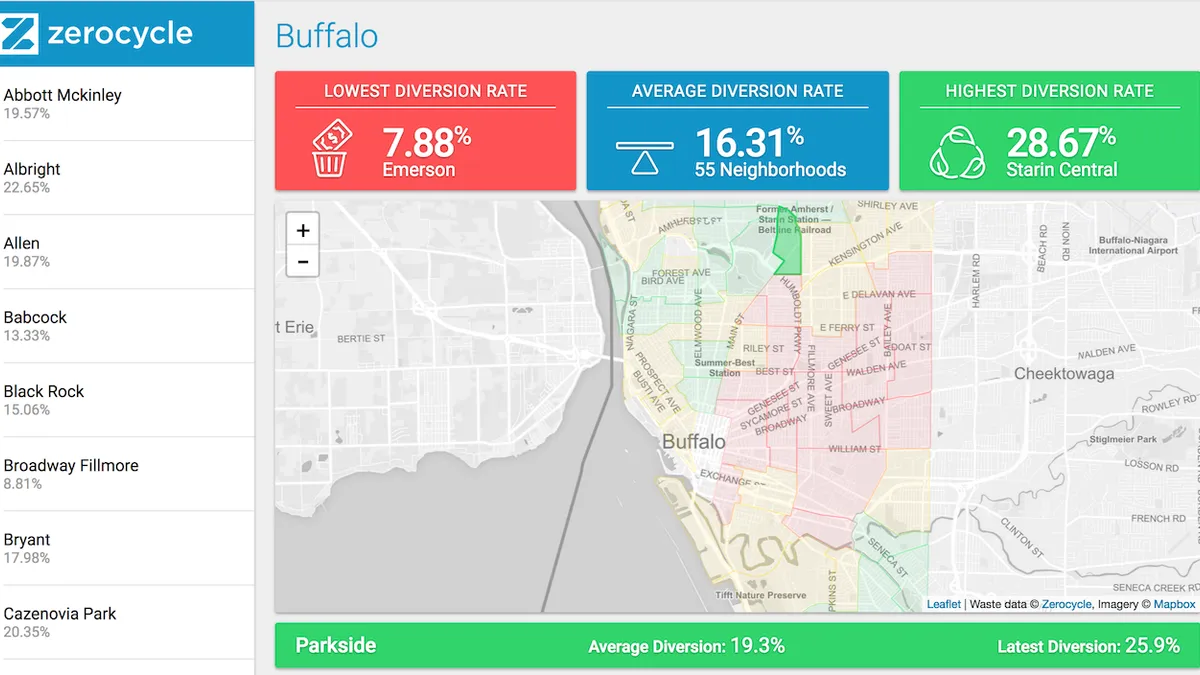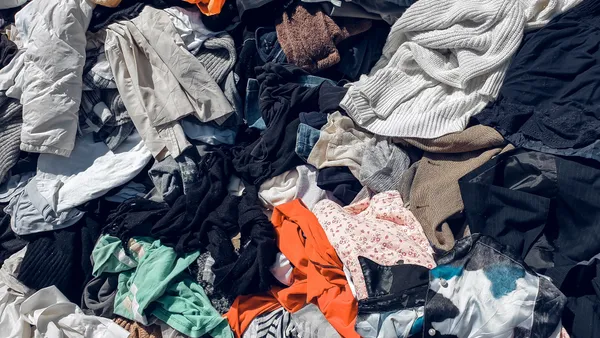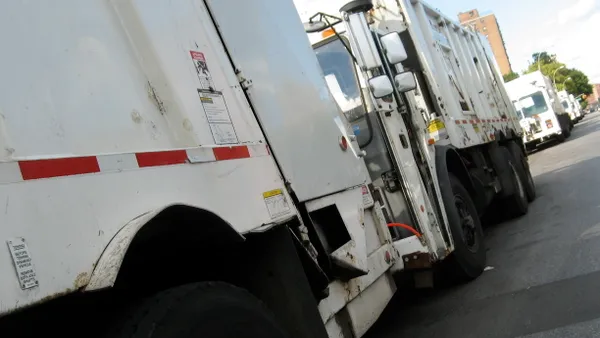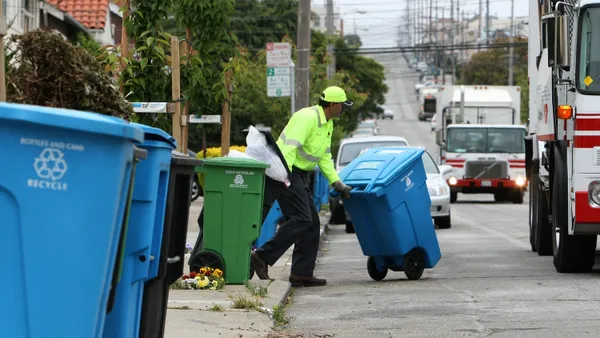Dive Brief:
- Use of Zerocycle's Resident Engagement Platform (REP) has increased recycling tonnage in target households in Buffalo, NY and increased participation by more than 15% in Cincinnati, OH, according to the company.
- Officials in Buffalo extended their contract term with Zerocycle and expanded the number of target households by 400%. Programs in both cities lasted 10 months, including a baseline measurement period.
- CEO Hunter Hayes told Waste Dive in an email the company is launching with Columbus, OH, Torrance, CA and Des Moines, IA in the first half of this year. Zerocycle is still working with Cincinnati to get the city signed up for this year, he said.
Dive Insight:
Zerocycle has previously shown success in cities including Fremont, California, where it was able to achieve a 13% reduction in waste through its neighborhood "report card" programs. The company recently announced it was deploying a new "Recycling Analytics Dashboard," called "RAD," in some of its program cities.
That dashboard takes data that the company and program city are gathering and presents it visually. Residents are able to seek out the dashboard and see, at a glance, how their neighborhood compares to other neighborhoods in the city. This kind of "friendly competition" is one of the guiding principles behind Zerocycle, and part of how it seeks to increase diversion.
If the results in these cities are replicable, which Zerocycle and Buffalo appear to think they area, the methods could go a long way toward helping cities across the U.S. which are struggling with recycling participation. Some cities, like St. Paul, MN have seen participation increase by making recycling more accessible and by switching to carts. The city of Phoenix recently saw a dramatic diversion increase and has introduced Recyclebank rewards programs, added more recycling centers and increased efforts in public areas to continue working toward its "zero waste" goals. Atlanta and Denver both saw capture rate increases after working with The Recycling Partnership on targeted education too.
However, when considering ways to increase participation in cities, it is imperative to keep contamination low. This is especially true in the tight global market that scrap currently faces. While the debate on how to best reduce contamination is constantly ongoing, some tactics with demonstrated success include using "oops" tags and implementing a pay-as-you-throw system.












